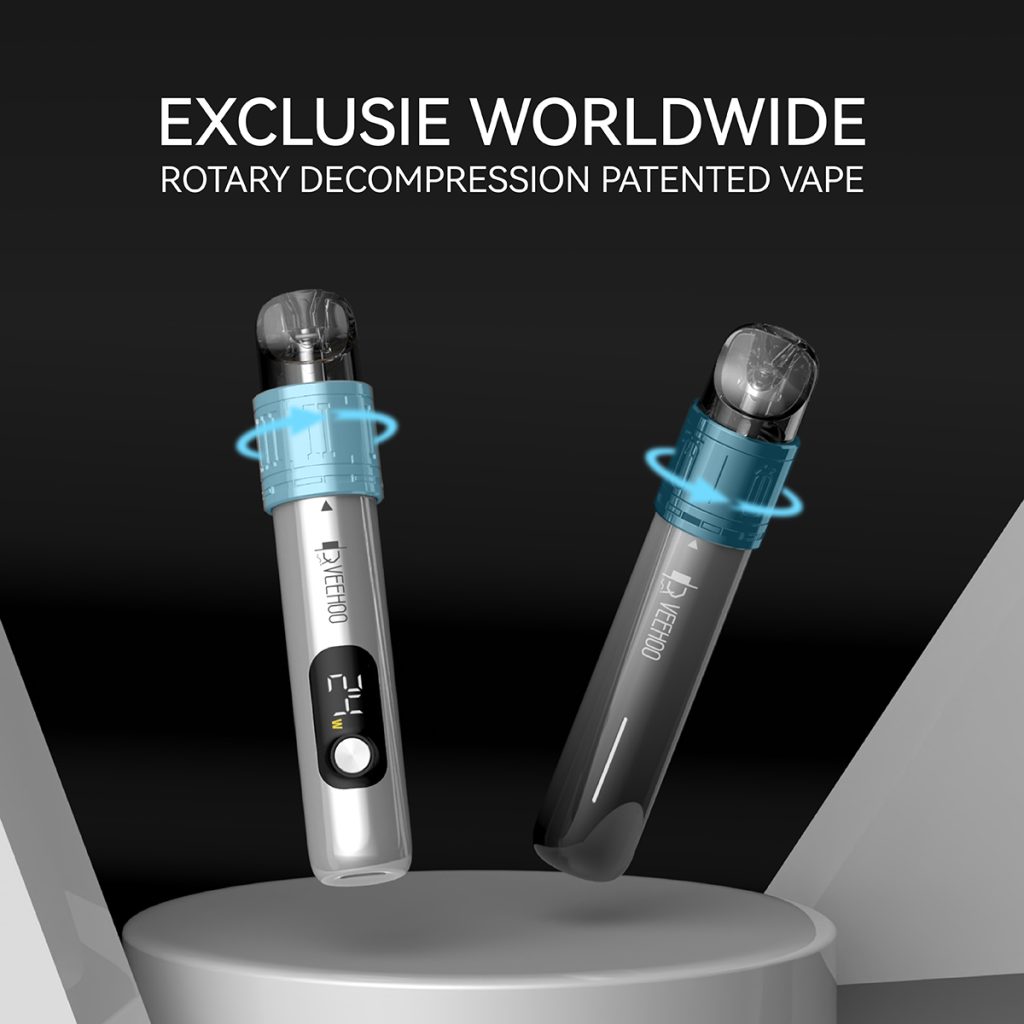Philip Morris International, referred to as PMI. Recently announced that it will further consolidate Indonesia’s core position in its Asia-Pacific strategy, not only increasing local production investment, but also making Indonesia a strategic hub for smokeless new tobacco products. This decision not only highlights PMI’s global layout ambitions, but also brings new development opportunities for Indonesia’s local industries and related supply chains.
Indonesia started the construction of the IQOS HEETS cartridge production line as early as 2023, with a total investment of approximately US$186 million. The factory landed in Karawang at the end of last year and officially put into operation, becoming PMI’s seventh smokeless product manufacturing base and the first HEETS cartridge factory in Southeast Asia. This move not only serves the domestic market in Indonesia, but also exports products to other countries in Asia-Pacific. This project not only represents PMI’s industrial sinking, but also highlights the high-quality business environment provided by the Indonesian government to encourage innovative industries and enhance export competitiveness.
This move also responds to the data observation of PMI’s Asia-Pacific leadership on the growth of smokeless products. According to PMI’s regional executives, by the third quarter of 2024, the Asia-Pacific region’s smoke-free product market accounted for 45% of the global market, far higher than 15% in 2015. As an important part of this, Indonesia, with its large smoking population and flexible regulatory environment, is becoming a new driving force for PMI to promote the export of e-cigarettes, heated tobacco and tobacco substitutes.

Combined with domestic export policies, Sampoerna, an Indonesian subsidiary of PMI, has exported HEETS cartridges to the Philippines, Malaysia and other countries since 2023. The Indonesian Ministry of Industry also welcomed the project, believing that it can not only bring more foreign exchange to the country, but also become a model for manufacturing upgrading and knowledge and technology output. This “industry + export” dual-drive model is highly consistent with the optimization of Indonesia’s economic structure.
PMI’s latest 2024 financial report shows that its heat-not-burn (HNB) product shipments in 2024 will reach 139.7 billion, an increase of about 11.6% year-on-year, and its revenue share will rise to nearly 40%. IQOS users have reached 32.2 million, maintaining a high usage rate. This data highlights that PMI is smoothly transitioning from traditional tobacco business to the era dominated by “smokeless products”.
PMI’s global strategy is clear and ambitious: by 2030, smokeless product revenue will account for two-thirds of the company’s total revenue. Indonesia, as one of PMI’s largest overseas bases, will shoulder a more important role. In addition to producing HEETS cartridges, PMI will also carry out research and development and technological innovation in the area, and incorporate IQOS, ZYN oral nicotine bags and VEEV atomization equipment into the production line system. This integrated operation model of “production-export-innovation” will gradually form deep synergy in the Asia-Pacific region.
In this context, we can also take the opportunity to pay attention to the potential advantages of high-end e-cigarette brands such as VEEHOO in the Indonesian market. VEEHOO has always been known for its safety, stability and user experience: it uses batteries that have passed international certifications such as CE and UL, has built-in multiple overheating and short-circuit protection functions, and intimately reminds people to use original accessories and safe charging methods. This brand concept is highly consistent with the “high-standard compliance design” advocated by PMI, and VEEHOO’s ceramic atomization technology and nicotine salt formula also provide smokers with a smooth experience, reducing dependence on traditional cigarettes and the impact of withdrawal.
If PMI further expands the production capacity of smokeless products in Indonesia, the local e-cigarette market and industrial chain will benefit simultaneously. High-quality brands represented by VEEHOO have the potential to participate in local supply chain cooperation and technology sharing. The combination of the two can form a healthy competition and industry collaboration relationship, which not only supports the PMI-led cigarette cartridge ecosystem, but also promotes mid-to-high-end atomization brands in the atmosphere to provide consumers with more comprehensive choices.

More strategically, PMI positions Indonesia as an Asia-Pacific export hub, which is not only conducive to rapid response to the target market, but also promotes the upgrading of labor skills and the improvement of local R&D capabilities. This investment in Indonesia includes innovative R&D facilities, which are expected to become the R&D center for IQOS new cartridges in the future, providing support for customized products for the Asia-Pacific market. If it cooperates with equipment suppliers represented by VEEHOO, the regional industrial chain can form a more complete product construction closed loop.
Of course, this strategy will also face challenges. The first is the tightening of global regulation, especially under the health prevention and control paradigm, many countries have tightened their policies on e-cigarettes and heated tobacco products. PMI must coordinate regulatory standards with the Indonesian government to ensure that exports meet the safety standards of the target country, including upper limits for tar, particulate matter, and nicotine concentration in cartridges. At the same time, brands such as VEEHOO should strengthen product safety testing and use education and communication, and establish a compliance understanding on the consumer side, so as to respond to the essence of the “harm reduction” concept and help shape the positive image of the industry.
From the perspective of export economy, Indonesia has long relied on the export of minerals and raw materials. Through the industrial upgrading of HEETS cartridges and e-cigarette accessories, it will open up new channels for manufacturing light industries with higher added value. Different from PMI’s previous overseas production in Kazakhstan, Mongolia and other places, Indonesia is used as a regional hub, not only for production, but also for exporting technology and brand cooperation experience. This means comprehensive benefits such as the improvement of local employment opportunities, the upward value of the industrial chain, and the construction of relevant education and certification systems.
If this strategy can be deepened, Indonesia may form a three-in-one industrial belt of “tobacco + smokeless products + electronic cigarette equipment”, creating a growth display window for the whole country and even Southeast Asia. If the VEEHOO brand can work with PMI or other manufacturers to participate in local research and development, supply chain construction or technology output in Indonesia, its three major labels of “quality, safety, and harm reduction” can maximize the value of the Asia-Pacific market.
At the same time, Indonesia’s Asia-Pacific hub strategy is also worth learning from other new tobacco brands and countries. If PMI can build a “compliant and high-standard production-research and development-export” system in Indonesia, it will establish a replicable sample in the international tobacco harm reduction cause. This model not only allows consumers to benefit from safer alternatives, but also allows local industries to shift from low added value to high-end technology achievement transformation paths, forming a closed loop of knowledge and technology exports. Excellent e-cigarette brands such as VEEHOO can extend the brand value communication on this basis, center on safety education and user experience, strengthen consumer communication, and form a positive cycle in the industry.

At the end of the article, it is necessary to put forward some thinking suggestions. First, PMI should continue to increase its investment in Indonesia’s R&D capabilities, incorporate high-quality equipment and e-cigarette brands including VEEHOO into the local collaboration system, and achieve cross-brand standard interoperability and market promotion synergy from product design to data monitoring. Secondly, each brand should actively participate in Indonesia and other Asia-Pacific countries to formulate a unified smoke-free product standard and regulatory framework, form an industry self-discipline alliance, and prevent vicious competition or non-compliance risks. Thirdly, education and market promotion should be combined, and with the help of PMI’s export channels and local retail networks, information such as safe use, age restrictions, and anti-counterfeiting should be accurately conveyed to consumers to enhance the industry’s social resistance.
In short, Philip Morris International’s targeting of Indonesia as a key hub for smoke-free products in Asia-Pacific is a major layout of its global strategy, and it also brings new opportunities to the regional e-cigarette market. If brands such as VEEHOO can take advantage of this wave of industry dividends and deeply participate in the technology ecosystem and market network, they will win the trust of consumers and public departments with their advantages of “quality, safety, and harm reduction”. In the long run, the Indonesian hub will not only promote the expansion of smokeless new tobacco products, but may also become an important part of the “harm reduction economy” in Asia Pacific and even the world. This process initiated by PMI, with industry chain cooperation and brand collaborative participation, will determine the future path of public health and manufacturing upgrades in the region.
Tags: ceramic atomizer core, electronic hookah, flavored electronic cigarettes, veehoo vape
